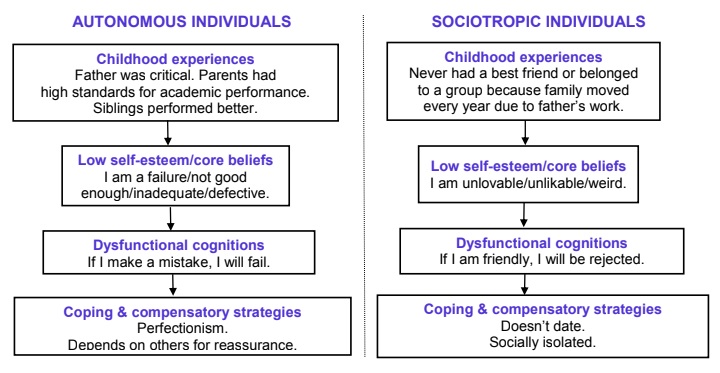Teaching Patients the Cognitive Model
By Lynn Mollick 
Adjectives patients use to describe their feelings of low self-esteem fall into two general categories: adjectives concerned with competence (“I’m defective/ powerless/not good enough”) and adjectives concerned with desirability (“I’m unwanted/unlovable”). The two categories reflect two fundamental values:
1. Autonomy – a strong desire for power and achievement; and
2. Sociotropy – a strong desire to be loved and accepted.
Individuals can be high or low on one or both. Tendencies toward autonomy and sociotropy are probably inborn, but life experiences determine their strength, the situations that activate them, and the thoughts, feelings and behaviors that result.
Based on Judith Beck’s Cognitive Therapy: Basics and Beyond, Dr. Sokol presented a cognitive model of low self-esteem for autonomous and sociotropic individuals:

Dr. Sokol emphasized the importance of thoroughly understanding patients and advised using this cognitive model to guide assessment. She also noted that the same behavior may function differently for sociotropic and autonomous individuals. For example, an autonomous individual may seek achievement in order to gain mastery and power; a sociotropic individual may seek achievement to be part of a group.